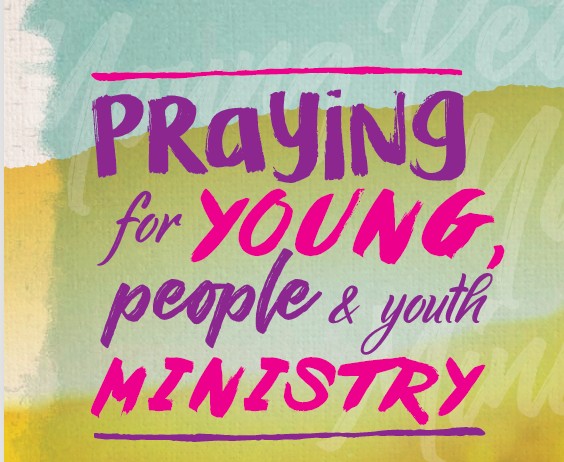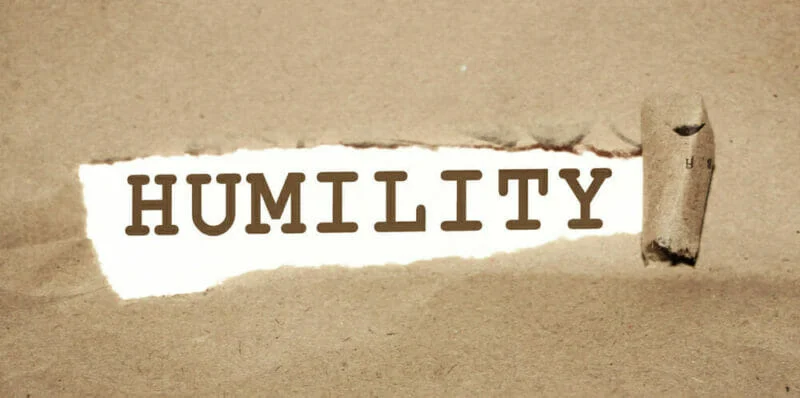The Church of Ireland’s Young People’s Ministry has created a booklet for praying for our young people. It includes general prayers, tips on helping young people to pray, interactive prayers and much more. This resource can be found as a pdf here.: http://ballisodare.achonry.anglican.org/wp-includes/images/media/document.png
All posts by The Rector
Paws for Thought
When I was a curate, one of my curate colleagues told the story of intervening in a discussion between two people as to whether or not dogs went to heaven. Not being fully sure I think she said that she was sure that there were animals in heaven and left it at that. But it was an interesting question and if you Google the question or look it up on YouTube you will find many a person saying that it is not the case, our dogs do not go to heaven. You may be of a different opinion because no one knows the real answer since we know God thought his creation was good and humanity very good.
I was touched by an article in the Gazette by a regular contributor to the magazine, John Deane-O’Keeffe, a Forensic Criminologist and Diocesan Reader in the Diocese of Dublin. In it he explores what is described as tail wagging theology. His premise is that, for Christians, our animals mean far more than we could imagine.
Having done some research he identifies that in the Bible, sheep get the most mentions, not surprising given what they represent, innocence and obedience. Lambs come second, then horses, lions, donkeys, oxen, goats, doves and dogs come in at 41 mentions but certainly from a Hebrew point of view they are not highly regarded. Other animals are mentioned and overall, there are around 120 species mentioned.
In reflecting though on the character of a dog from a Christian perspective he notes that dogs are ‘a loop tape of compassion, forgiveness and love in its purest form’ For example, he says, that you can leave your dog out in the rain but when you come to the door it’s the eternal sunshine of the spotless mind. In relating further to creation, he maintains that animals are not merely walk on characters in our lives but possibly the other way around. It is God’s creation that is the teacher with everything pointing to the Creator. For him, when the dog looks at you with those ‘innocent, warm, beautiful and forgiving eyes’ we see love, the love of Christ.
The Rule of St Benedict
The Rule of St Benedict was written in the turbulent context of Italy in the 6th century to answer the questions of how shall we live, as communities, as individuals, as churches, as businesses etc in an uncertain and fast changing world? The Rule has been rooted in Anglicanism and Benedictine communities are growing while many denominations are in decline. The aim of the Rule is to shape a society that is truly Christ centred and provides the tools to accomplish the task.
The Rule is heavily based on scripture and particularly the wisdom literature of the Bible. It comprises a Prologue and 73 chapters developing into three dynamic sections: Formation, Administration and Renovation. While originally aimed at monastic communities the Rule can help us in the search for wisdom in the 21st Century.
For St Benedict the starting place for this was the state of the human heart and gaining a greater definition for our own lives and taking responsibility for ourselves.
Following that the next step is for an individual to subordinate oneself to the higher principles and purposes that energise, integrate, balance and anchor ourselves with a greater integrity. This means laying aside where we have come from and taking up the new identity of being a Christian. Now, new rules, new values and new goals apply to our lives because of our new identity.
As I said earlier, the rule was directed towards the monastic lifestyle but in our lives we are then called to self-manage, to exercise personal stewardship and oversight in the use of time, setting goals and prioritising, keeping commitments, focusing on the important but not necessarily urgent tasks.
These first disciplines are about the formation of our character and next set look are interpersonal disciplines that create trust. This is the transition from independence to interdependence. As the great Irish poet, John Donne said, ‘No man is an island’. Aimed at leaders this is about creating a team to shape the community set free creativity but kept in check by boundaries. An example would be creating new ways to worship but ensuring that this is done within the canons of the church as set out in the constitution.
And it is for the leader (an abbot in the original thinking) to keep the morale up, to be observant of those who form the community and maintaining their ‘emotional bank account’ but also facilitating the corporate discernment of the community. Neither of these things are easy to do but keeping the spiritual life of the individuals of the community is essential
One question to ask at this time is who is caring for the leader (the abbot) and the answer is that it is the community’s responsibility to care for the leader through the team effort by the exercising of the gifts and talents of the community. If the community works well together, then the leader can lead.
While making no specific rule about holidays and time off the Rule of St Benedict does insist on a balanced, ongoing daily and weekly regimen and rhythm. It does, therefore, promote self-care, as being constantly available to others does sap the strength and therefore, diminishes the effectiveness of the leader to lead.
In addition, though the rule states that it is the leader who determines the working climate of the organisation. In St Benedict’s case, a monastery, but applicable in other situations as well. It is the leader who has to create the climate of trust but in order to be Christlike they should also be the doctor who cuts out and the good shepherd who seeks out. Not an easy role to balance.
And finally, the community grows if the leader seeks out new sources of energy and information which empowers and generates energy in others which will then drive the organisation forward.
This is just a brief view of the Rule of St Benedict from my point of view following my retreat week based on the Rule of St Benedict for Church Leaders.
Reflection on Humility
“The greatest among you will be your servant. All who exalt themselves will be humbled, and all who humble themselves will be exalted.”
Matthew 23:11–12
The Gospel passage above is very clear. Greatness is found in servanthood. Exaltation is enjoyed only through humility. Is the ideal lifestyle one that is filled with indulgence, entertainment, luxury, and the like? Certainly not. The ideal life, the greatest life, the most exalted life is the life of the most humble service of others as possible.
Jesus was, without question, the humblest person to ever live. Humility enables a person to break out of every selfish tendency and turn their love to the good of the other. The Son of God did not become human because it somehow benefitted him in a self-centred way. He did it because he loved us and his Incarnation benefitted us. Everything Jesus did was done for others and never done out of a selfish desire. Jesus did everything he did out of his love for others and with humility so as to bring salvation and transformation to their eternal souls.
In our lives, we need to make a fundamental choice. Am I going to live for myself? Or am I going to live for others? If we realize that living for others is also the path to our own greatness and ultimate exaltation, then it becomes much easier. Serving others, especially in a spiritual way by which you do all you can to help them grow closer to God, is what will make you great. Nothing else can do so. Believe that and live it.
Reflection on Faith
“And yet, when the Son of Man comes, will he find faith on earth?’ (Luke 18: 8b)
Jesus poses an interesting question here. The answer to the question is dependent on whether or not we each have faith in our hearts. So, what is your answer? I would hope the answer is ‘Yes’. However, it should be more than just a yes answer because our faith is meant to increase over time.
What is faith? Faith is a response from each one of us to God speaking in our hearts. In order to have faith we must first listen to God speak. And when he does this, we exhibit faith by responding to what he reveals to us. We believe in his word spoken to us and it is this act of believing that forms faith within us.
Faith is not just believing. It is believing in who God is, his word to us and what God tells us personally. Faith then gives us certainty as to what it is that God is looking for in our life.
Reflect upon how certain your faith is. Reflect on Jesus asking you this very question. Will he find faith in your heart? Commit yourself to all that God reveals to you every day.
Prayer: Lord, I desire to grow in faith. I desire to grow in my love and in my knowledge of you. Amen
Human Nature
A Short Reflection on Human Nature
The Bible’s first two chapters paint a picture of God’s creation in harmony: people, living creatures and the natural world all fit perfectly together. The creation myths of the time these stories were written described a world born out of violence and hatred, battles in the heavenly realms. However, Genesis 1 says: ‘God saw all that he had made, and it was very good’.
Genesis 3 is where things start to go wrong for humanity. It shows the truths about human nature. We’re drawn to the bad stuff. There appears to be something darkly attractive about stepping over the boundaries and doing what we know we shouldn’t do. When Adam and Eve disobey God, they become ashamed of who they are. They try to avoid responsibility – Adam blames Eve, and Eve blames the snake. The harmony between them is broken, and so is the harmony of nature. As a result death enters the natural world as God makes clothing for them out of animal skins. Life becomes much harder and much more painful.
The French mystic, political activist, theologian and philosopher Simone Weil once wrote: ‘Imaginary evil is romantic and varied; real evil is gloomy, monotonous, barren, boring. Imaginary good is boring; real good is always new, marvellous, intoxicating.’
Adam and Eve weren’t abandoned, and the rich tapestry of the Bible is threaded through with grace. But Genesis 3 is a warning: sin has consequences, and when we do wrong we will regret it.
Book Review February 2026
Sleeping Beauties by Jo Spain
Sleeping Beauties by Jo Spain
For a man who would rarely read a novel because I love accumulating knowledge, I seem to be getting into reading fiction more and more. And at the moment, I am enjoying two Irish writers Jo Spain and John Boyne to the point that Julie is constantly scanning the shelves of charity shops and second-hand bookshops for them. I did rather well at Christmas and Sleeping Beauties was one of them.
This is again one involving Detective Inspector Tom Reynolds and his team. These characters help keep the consistency in the stories and obviously allow the author to add some back story and various deviations from the main theme along the way. These are, in my opinion, at about the right level, just enough to keep the interest but not overwhelming to the extent that they take over the main story.
The pretext of this story is a young woman, Fiona Holland, who goes missing. She has a bit of a wild reputation and the question is, has she just gone away or has something more sinister happened. However, shortly afterwards the graves of five women are discovered in the valley of Glendalough which leads the team into an inquiry of a possible serial killer as they discover these women were all very vulnerable and sadly, Fiona Holland fits the profile. Examination of the bodies shows that there was some time that passed between when they went missing and when they were killed so the race is on to try and find Fiona before she becomes the latest victim while still investigating the murder of the recently found victims.
Another great story of intrigue, detective work, drama and suspense. Another excellent read and I guess I might manage a couple more Jo Spain’s before I get bored with the format but for someone who like a puzzle to solve these definitely fit the bill.
.






